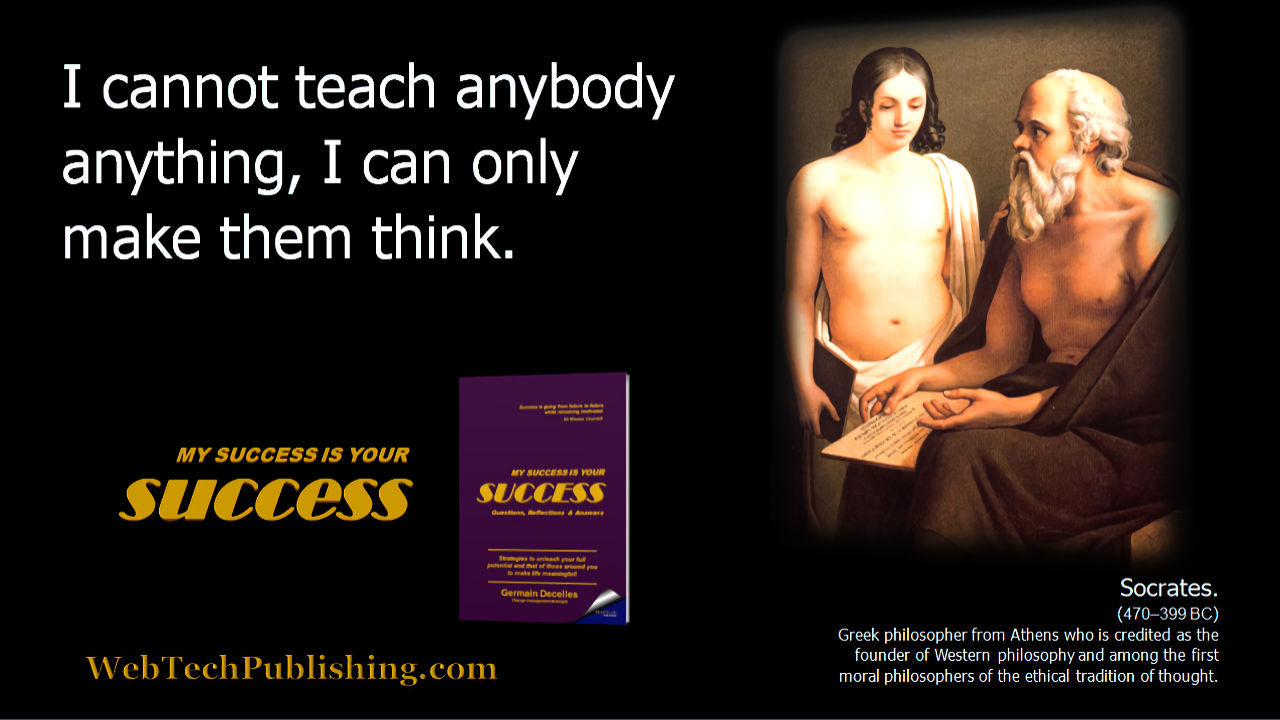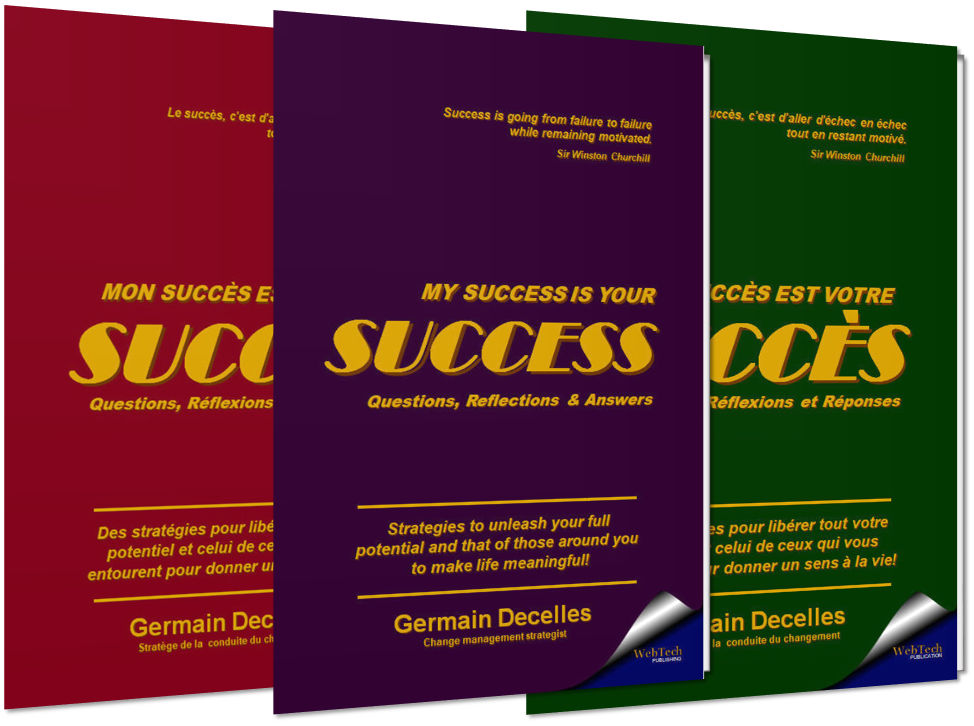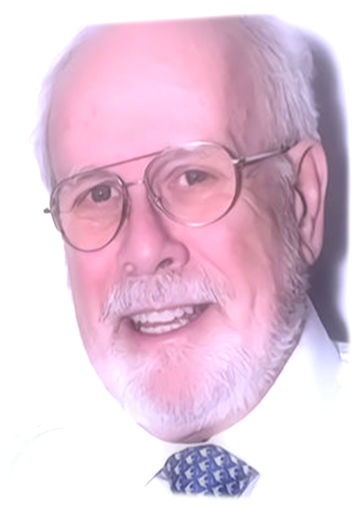|
Article published on LinkedIn.com:
May 03, 2024
37_education_En.pdf

The quotations, short texts, and photographs in this
work remain the exclusive property of their respective
authors.
EDUCATION
What can I improve?
What should I change?
The value of education is emphasized to us from an early age.
It is most important to become more educated because we live
in the age of knowledge.
Everything is at our fingertips, and we must take
responsibility and train ourselves so that we can improve for
the better. The more we know, the more we can help ourselves
and the people around us.
The basic education received in primary, secondary and
university schools inculcates basic knowledge, theoretical
knowledge, which must be used to help us accumulate even more
expertise once in the labor market.
This education received, makes it possible to possess a wealth
of theoretical intellectual information. However, it must be
avoided that the student on receiving his diploma can state
that he has the
« competence »
to place himself on the path
to success.
Here, the meaning of the word in the field of work should not
be confused:
a.
Recognized competence:
being, the legally recognized ability of an authority to deal
with a question, to judge it, to perform an act, according to
determined methods.
For example, a doctor who has obtained an official certificate
to practice medicine.
b.
Competence accompanied by experience:
being, a thorough knowledge, a recognized experience in a
field, which gives the quality to someone to judge, to decide.
For example, an employee who demonstrates great skill acquired
in the field. The skill of a plumber, electrician, carpenter,
teacher, accountant, etc.
Therefore, the newly
graduated student must acquire
«
experience
» for a certain period of time, which may even be
several years, for example, doctors and engineers.
Knowledge, know-how,
expertise, skill, experience, aptitude, and professionalism
are the qualifiers of the
« competence
»
designation.
Education is most important for success and should be
continued throughout life. A person may think that he no
longer has to study or get information, but for this person
failure will creep in.
There is the school system, but there is also autodidacticism.
A person who learns by himself, who teaches himself without
the help of a teacher or an educational establishment.
A self-taught person may aim to learn a little about
everything, or they may work hard to master just one subject.
Either way, it's the act of taking your learning under your
control. It is this drive to push yourself that ultimately
leads to personal and financial success.
Successful people never stop learning. The people who hurt an
organization, the most, are the people who think they have
arrived because they stop growing, innovation, and improving.
Successful people read books, learn new skills, study academic
or business journals, learn from their peers, or strive for
change through innovation. They all share a passion for
wanting to learn new skills and discover new ideas.
Life itself is a long learning experience, and the modern
world is moving and changing at a breakneck pace. Change comes
through innovation and creativity.
Individuals and organizations that remain indifferent and do
not embrace change run the risk of being overtaken by either a
competitor or someone who is continually updating.
Take personal development seriously, because trying to learn and grow,
will help you and your organization in the long run. Your
journey will only be successful if you dedicate yourself to
continuous development.
Also, if you've hit a plateau and have no desire to
learn anything new, it's time to do some soul-searching to
figure out why.
Just as physical exercise develops your muscles,
when you learn, your brain develops with mental training to
develop new neurons which, in turn, develop greater
connectivity to manage information.
Therefore, successful people keep an open mind
to new things because they know that no matter how proficient
they are, there is always more to discover.
People who understand the goal of continuous
development elicit an uncommon tenacity in everyone around
them. So ask yourself:
What can I improve?
What should I change?
Simple, if you do nothing or repeat or always
do the same thing, you stay the same and staying the same
means going back.
1.
Nurture your mind:
feeding your
mind with new knowledge and information is essential for
creativity. An idea arises when you use your accumulated
knowledge and combine it with new information.
The simple
formula (Knowledge + Information = Idea) shows that it is
impossible to create an idea out of nothing. For example,
knowledge of glass, the ability of lenses to split light, and
knowledge of how the eye works led to the invention of
eyeglasses.
All ideas emerge when a person combines their accumulated knowledge with
new information. This is why it is so important to gather
knowledge, which is varied. Simple, you need knowledge to
expand your mind.
2.
How to learn daily:
the following little habits are very useful when you want to
become an accomplished autodidact:
a.
Always look for new
elements:
if you come across a word or reference you don't understand,
look it up. This is, for example, using a dictionary or an
encyclopedia on the Internet. Make it a routine to learn a new
word and reference every day.
There are also other resources like:
1)
Blogs:
some of the smartest and
most inspiring people regularly post their best work and ideas
on their blogs for the world to see.
2)
Online courses:
the reality was that college
courses were only offered to people who could afford to attend
college. These days, you can take these courses online, and
many of them are free.
3)
Conferences and specialized
videos:
the best minds in the world regularly present their best ideas
for talks and seminars that are readily available in formats
ranging from a few minutes to several hours.
4)
Audiobooks and podcasts:
this resource is also a good
way to learn new things.
However, when using these means to further your education, be
sure to validate the sources you use.
The Internet is an
extraordinary source of information; however, there is a lot
of misinformation and even impostors who exploit people's
credulity by posing as specialists, scientists, educational
organizations who do not have accreditation, etc.
b.
Reserve 15 minutes:
ideally at the same time
each day. No matter how pressed for time you can always find
15 minutes. Make it the time you dedicate to your education
every day.
c.
Help your brain to retain: write down the points of
information, then repeat them loudly, as this experienced way
of absorption will help your brain to archive information more
quickly.
Another tip, which is to
review the information written down once a week, will not only
allow you to put the information into perspective, not only
you will retain it more.
3.
Make time to travel:
travel exposes us to different cultures and ancient
traditions and through these authentic encounters we learn to
accept and celebrate our similarities and differences.
Travel teaches us about humanity and allows us to
appreciate, understand and respect different points of view
and ways of life.
To download this and previous articles, go to WebTech
Publishing (www.webtechpublishing.com)
and click on the green image (e-NewsLine).
To learn more about how to inspire success, visit WebTech
Management and Publishing Incorporated (www.webtechmanagement.com)
and click on the blue image (Wise whiZ) at the bottom right of
the screen.
|

|
This book is the result of forty years
of experience acquired with local and international
organizations and companies and during consultancy,
change management, transition and marketing services.
This 404-page
personal development book was published by WebTech
Publishing and is available online in English, North
American French and European versions. For more
information and to view the flip book, visit
webtechPublishing.
|
About the Author
Decelles
Other publications:
ISO Pour Tous
– Le manuel
d’information ISO – Le guide de préparation ISO – La
gestion du changement en affaires – La gestion de
projet d’affaires – Le
changement POUR TOUS –
Change your future,
now! – Mon succès est votre succès.
Press Contact
Germain Decelles, o.s.j.
WebTech Management et Publication Incorpored
|
 |
—30 —
|